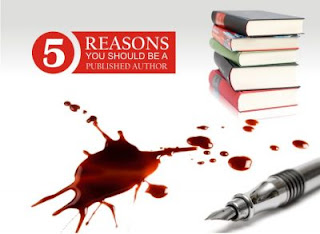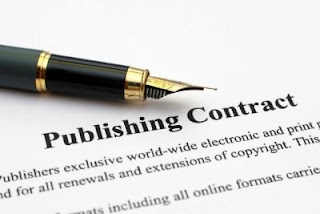Writing and publishing your own book is such an exciting experience, filled with incredible ups. However, many writers, amidst the excitement, fail to realize that they’re responsible for promoting their own book – leaving it to the last minute. Promoting your book isn’t as difficult as you may believe, but it does require determination, motivation and a little head start.
Don’t let the thought of book promotion deter from the excitement of writing your own book. It’s all part of the process, whether you’re walking down the traditional publishing or indie publishing path.
Here are a few little tips on how to promote your very own book, even if you don’t have heaps of money to push you along.
The Internet Saves the Day
With social media and websites, the internet is single-handedly the greatest thing for promotion on a budget.
Most authors, especially first-time authors, only have a small following on Facebook, Instagram, and Twitter. There is a way around this, though. When you’re planning on writing a book, you should also start working on building up a following.
Growing your social media following isn’t the easiest thing, but it’s not impossible. There’s an array of authors on the internet, desperately trying to sell their books and, in all honesty, if you do it wrong, you can risk being unfollowed.
With the right profiles, bios, and content, you can create your very own brand for free. Posting too often or being too aggressive can have an adverse effect. Use your social media accounts as more of a networking type of role, attracting interest in your work, rather than a powerful promotion tool. We promise you’ll see the benefits.
Author promotion is helped greatly by a blog too. We know, you might be wondering how you’ll write a full book and blog, but the long-term rewards are just incredible.
Kelsey Benson, content editor for Resumescentre.com explains: “With every single blog post, you are exposing your character, showing your skills and creating new content online. It opens new doors, more followers and improves your SEO rating.”
The more you post, the better your articles and the more interesting your blogs, the higher you will list on Google. Before you know it, a great percentage of your visitors will be coming in, directly from Google. When your traffic begins to increase, why not create a pop-up or mailing list about your new book?
Search Engines prefer articles that are longer than 1,000 words — just a little tip.
Tap into Networking
Networking is pretty much a mandatory part of the equation. It’s mutually beneficial, and that allows people to be inspired, work together and gain an acknowledged reputation.Introverts everywhere, you don’t have to panic. Networking doesn’t mean attending multiple social events (although, that wouldn’t hurt). It is just as simple as networking with one person at a time. Focus on quality rather than quantity. One good, helpful connection would be more advantageous than ten ghost connections.
Social networks and niche websites like LinkedIn, BumbleBizz, and Onlinewritersrating are brilliant ways to connect with people and fellow writers. However, many make the mistake of clicking connect and, then, never really connecting. Make sure that you reach out to people, send messages and even ask for a coffee.
As an author, the best thing that could happen for you is a co-promo agreement. Another author will promote your book or recommend it, and you do the same for them…when the time arrives.
Start in Advance
We recommend that you start promotion at least six months before its release date. This includes all the networking, teasers, website building, social media marketing and everything else you could possibly think of.
We can’t stress this enough, your promotional efforts should never be left until the last minute. Moreover, the earlier you start, the more interest you will generate, producing more sales.
Creating an author platform should be one of your main goals, as well as writing your book, obviously. Growing this platform requires building your own unique brand, building relationships and getting really serious about social media.
It doesn’t matter how new you are; you can grow your author platform from scratch if you just put the effort in. The first step is to create your own website. From that, you can create content, guest post and direct people to your site. This will take time, hence the recommended minimum of six months.
Focus on Content
Content marketing is one of the most important things, really, any business can do. As an author, you should treat this new venture as a trade, marketing, and advertising just the same.
“Content marketing might just seem like another buzzword, but it’s vital — and it’s here to stay,” states Hellen Lewis, a social media manager at Canada-Writers. “It basically revolves around creating and sharing of online material – something which we’re all basically experts at anyway.”
This material should be used to attract attention to your profile or website, not explicitly market your book. When people check out your content, they might just sign up to your mailing list, follow your work or research you. Ultimately, you might eventually gain new book customers.
We’ve already briefly mentioned blogs, but we’ll discuss them again because, well, they’re important. As a writer, not only do you have all those amazing skills to showcase, they can really help you. Writing relevant blog posts, perhaps even relevant to your book, could be the best advertising you could do.
Importantly, using your blog as a personal diary, sharing holiday pictures and talking about your life, yes, is blogging, but it isn’t content marketing. For promotion, you should focus on useful, specific blogs, targeted to a particular niche.
Another effective way to market your book is through video. Did you know that Google owns YouTube? This has led to online videos increasingly becoming the go-to for many users.
It’s not just 7 second Vine videos either, we’re talking long-form, hour-long interviews, Q&As, and documentaries. If you need any proof, just take a look at Shane Dawson’s viral 40-minute documentary-style videos that stormed the internet.
Don’t overlook audio content either. The majority of the world carries around a smart device, everywhere they go. People have really taken to downloading and listening to podcasts in their free time.
Imagine how many loyal followers you could gain from talking to people for thirty minutes every week. Whether it’s about books, marketing, feminism or being a mum, there’s a space for you in the podcasting world.
Last but not least, photos. The internet is exceptionally image-heavy, don’t ignore it.
“Images with witty, fun captions can easily go viral – especially on Facebook and Twitter. Keep it down-to-earth, relevant and on-brand, and you could gain new followers, that may just be interested in buying your book.” — Alan McGill, senior marketing manager at EssaySupply.com.
Below is a little content marketing schedule, which will prove priceless in your book promotion endeavors.
- Things to post every single day– Make a simple effort to post every single day on Twitter and your Facebook page. This could be something really simple, that will only take a few minutes of your day. Don’t forget to respond to comments and replies on your posts, engage with people and follow new people.
- Things to post every two to three days– Instagram and LinkedIn posts should be kept to every few days. Users of these apps don’t respond the same to regular posting. Posting too much might be considered “spam” and people will unfollow. These posts should be more thoughtful. Take the time to like, share and connect with new people on these apps too.
- Things to post once a week – We recommend a blog post a week. However, don’t be scared to post more than once a week, if you have the time. If you have a YouTube and Podcast, your content for these platforms should be scheduled for once a week…usually at the same time. This way, people will tune in.
- Things to do once a month– check your analytics once a month, consider what you did well and where you could improve. You should also aim to guest post, collaborate or network at least once a month. You’ll be surprised at how many new followers you can get, just from appearing on somebody else’s podcast.
- Things to do once a year– This is entirely your choice, but a book a year isn’t the craziest thing you could do. If you love writing, you’ll love your job.
Reach out to your Readers
It’s not just about gaining readers, it’s about keeping them too. It’s a lot like a real-life relationship – it takes effort, communication, and engagement. Mastering the art of engaged marketing will be sure to benefit you and your sales.
“Social media has made reaching out so much easier for modern authors. With the use of ‘live’ features, polls and stories, you will be able to really involve your audience, an invaluable aspect of book promotion.” — Ethan Coy, social media manager at Best Writers Canada.
Don’t forget to use your brand to engage. By ‘brand’ we mean your personality and voice. Act as a friendly friend to your readers, show interest in their lives and reach out to them. There are many ways that you can do this, these include:
- A reader of the month section on your website
- Contests or giveaways
- Handouts at events
As the author, you are ultimately responsible for the relationships with your audience. Engaging, kindness and authenticity will be sure to profit you along your writing career.
Join Forces with Influencers
Influencer marketing has taken the marketing world by storm. You’ve probably seen it yourself – people online with a large following, making sponsored posts. Well, you can use this to help promote your book.
Influencers are already doing a great job at connecting, promoting and engaging an audience. Consequently, you can benefit from this.
Influencers aren’t a one size fits all type, though. You have to find an influencer that will genuinely gain you new and interested followers. There’s really no point reaching out to a fashion influencer if your book revolves around gardening, for example.
Look for popular authors, bloggers, bookstore owners, organizations and relevant people in your niche, reach out to them and just see what they can do, it can’t hurt, right?
If your book is revolving around the world of heartbreak, targeted at young women. There are many lifestyle influencers with tones of young female followers. In those cases, it could be good to reach out to a range of prominent Instagram or Twitter personas.
Many authors send free copies to influencers. Let the writing speak for itself.
Don’t Forget about Press Releases
You are a writer, after all. Why not cut the costs and write your own press release? Here are our top tips on writing the best press release:
- Have a hook – the best news stories grab the reader with something really interesting.
- Focus on your headline – this will be the breaking or making point.
- Include quotes and testimonials – this will add efficacy.
Not too wordy – a press release should be about 300 to 400 words long, enough to grip the reader and keep them interested.
Don’t Forget about Email Lists
With the help from content marketing, it would be absolutely worth building up your own email list – a vital resource for promotions, launches, and getting reviews.
With a little help from your website, blog posts and social media, people will, hopefully, happily enter in their email, to receive updates from you.
You will have to create a compelling opt-in /popup. Perhaps offer a free chapter, guide or course, or even a free book in your series. Once people have given you permission to email them, you’ll be able to let them know about new blogs, books, and products.
Take your Book Promotion to the Next Level
It just shows you don’t need all the money in the world to promote your book, simple efforts, engaging with your audience and regular posts will do the work for you – and get you started without needing to invest huge sums in advertising.
Promotion is a really important component in book publishing. Don’t leave it to the last minute, and use your ingenious creativity to elevate your brand. You did write a whole book, after all…
Culled from Your First 10K Readers














